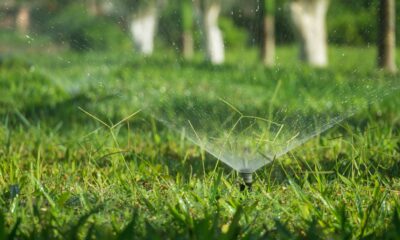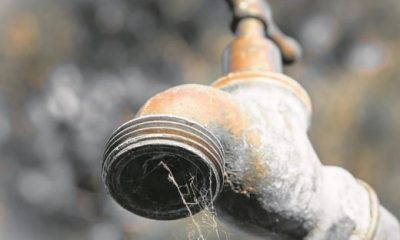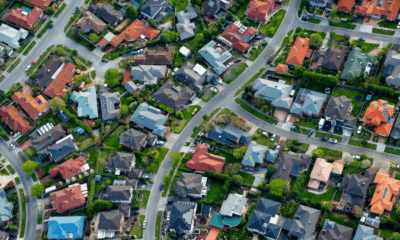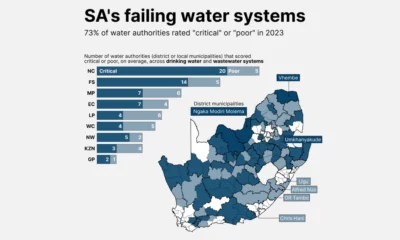Best of Johannesburg
Timeline of Joburg’s Biggest Water Crises – And What We’ve Learned (2025)
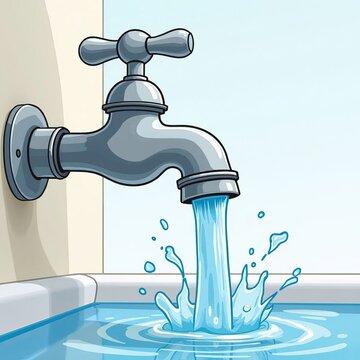
Most Joburgers now keep a bucket by the bath – just in case. Water outages have shifted from occasional hiccups to an uncomfortable new normal across the city. And in 2025, the crisis is no longer about isolated incidents – it’s the result of years of underinvestment, infrastructure neglect, and slow political will.
Here’s a look at how we got here – and what still needs to change if we’re to keep the taps running.
Also read: How Weather Patterns Are Changing Gauteng’s Water Supply in 2025
A Timeline of Crisis Moments
2023–2025: Supply disruptions become widespread
Over the past two years, residents have endured waves of water cuts, pressure drops, and full-blown outages. One of the worst incidents was the 86-hour planned shutdown in 2023, which saw large sections of the city without any supply. Interruptions became increasingly frequent as maintenance backlogs mounted.
March 2024: Lightning strike knocks out supply
A lightning strike in early 2024 took out key infrastructure in Johannesburg South, cutting water to thousands of homes. It was a sharp reminder of how fragile the system had become – a single storm could leave entire suburbs dry.
November 2024: Resistance over illegal connections
When Joburg Water attempted to disconnect illegal water lines in certain informal settlements, it sparked community pushback. The incident revealed the social tensions underpinning the technical issues – and how addressing water losses isn’t always straightforward.
Late 2024–2025: Rand Water reduces bulk supply
In a phased move beginning December 2024, Rand Water started reducing its supply to Johannesburg – from 1,600 megalitres per day to just 1,356 Ml/day by September 2025. Although framed as a long-term sustainability measure, it placed further strain on an already overstretched system.
What’s Fueling the Crisis?
Ageing Infrastructure
Johannesburg’s water network is old – and it shows. Burst pipes, broken valves, and unreliable reservoirs have become common. The system was never designed to handle today’s population or climate stresses, and it’s buckling under pressure.
Massive Water Loss
Almost half of the water supplied to Johannesburg never reaches paying customers. In the 2023/24 financial year, 46.2% of the city’s water was classified as “non-revenue” – either lost through leaks, illegal connections, or faulty billing.
Load Shedding’s Silent Impact
When the power goes out, so do many of the city’s water pumps – especially in high-lying suburbs. Without electricity to drive the system, entire neighbourhoods are left without pressure, making load shedding an often overlooked factor in the water crisis.
Broken Billing and Mismanagement
Joburg Water is still working to consolidate its billing and improve revenue collection. But years of poor oversight and limited financial accountability have left the utility cash-strapped and unable to invest in urgent infrastructure upgrades.

Image 1: Vecteezy
What’s Being Done (and Is It Enough?)
Reducing Consumption
Joburg Water aims to cut daily water usage by over 103 million litres through leak repairs, pressure controls, and system improvements. But progress has been slow – and the public remains unconvinced.
Revenue Reforms
Improving billing systems and customer engagement is part of the current strategy. Yet with widespread service issues, many residents have lost trust in the process – and some are seeking alternatives like boreholes and water tanks.
Exploring Private Partnerships
The city is considering public-private collaboration to manage and upgrade water systems. While contentious, some believe private sector involvement might be the only way to fast-track major improvements.
What Are Residents Saying?
Online, frustration is palpable. Community WhatsApp groups and local forums have become lifelines for sharing updates, warning of outages, or just venting. There’s also been growing pressure on public officials to offer clearer timelines and more honest communication.
For many, this isn’t just about dry taps – it’s about being kept in the dark.
What We’ve Learned – and What Has to Change
Johannesburg’s water crisis is now deeply systemic. Fixing it means going beyond reactive repairs and building a new, reliable foundation. That means:
-
Urgent infrastructure investment
-
Crackdown on illegal connections
-
Stronger communication and public transparency
-
Smart conservation strategies
-
Backup systems to offset load shedding
We have the technical knowledge. The question for 2025 is whether we can summon the political will – and earn back the public’s trust – before the next crisis hits.
Also read: How Joburg Communities Can Lead the Way in Sustainable Water Management
Follow Joburg ETC on Facebook, Twitter , TikTok and Instagram
For more News in Johannesburg, visit joburgetc.com
Featured Image: Adobe Stock





